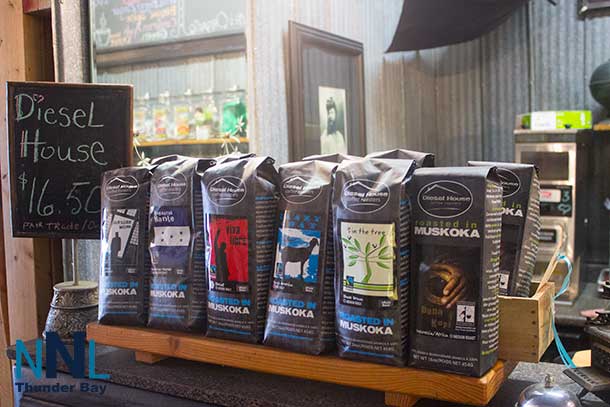

HALIFAX, N.S. – FOOD – Coffee is a big deal. In fact, coffee is the second largest traded commodity in the world – behind oil.
Canada doesn’t produce coffee beans, but it seems addicted to them. This nation ranks third among the world’s top coffee drinkers, after the Netherlands and Finland. The average Canadian drinks a whopping 152 litres of coffee annually. That’s almost the size of a barrel of oil.
Years ago, Canadians travelling to Europe quickly noticed two significant lifestyle differences: more smoking and aromatic coffee. The smoking differential remains. The consumption of coffee, on the other hand, has lessened in recent years. Europeans drink mainly smaller, stronger coffee portions.
At the same time, North American coffee consumption patterns have changed dramatically. The move to stronger coffee was led by Starbucks more than two decades ago. Other retailers had to adjust as the North Americans’ coffee palate changed. In Canada, most retailers with significant coffee market shares have Europeanized their coffees, including Tim Hortons.
And McDonald’s Restaurants have made recent in-roads in the coffee game. With one restaurant per 25,000 Canadians, McDonald’s success in coffee sales has been noticeable.
But when it comes to Canada’s love affair with coffee, the legacy of Tim Hortons can’t be overlooked. Canadians perhaps drink more coffee because of our colder climate, as Scandinavian countries do, but the story is much more complex than that.
Canada has one Tim Hortons for every 9,000 consumers, a high ratio. The chain has built its empire by connecting with communities big and small. For decades, its corporate and social engagement was textbook – Tim Hortons sponsors sport teams and holds summer camp drives, for example. By giving back, Tim Hortons has sold more coffee.
It’s no fluke, then, that Canadians are the world’s largest consumers of coffee outside the household, according to Eurometer. That trend, known in the sector as the “Timmy’s effect,” has been going on for more than a decade.
But in recent years, Canadians’ demand for coffee outside the home has contracted by almost three per cent yearly. Single-serve coffee machines are an increasingly strong rival to the traditional drip brewers, prompting more consumers to drink at home. Deemed more convenient and less wasteful, single-serve coffee pods have put Canada near the top of the world’s coffee drinkers.

That’s why many coffee retailers sell pods – including Tim Hortons and McDonald’s – regardless of the cost to the environment. The profit potential is just too large to ignore.
But with leadership from companies like Loblaws, Canada has its first compostable coffee pod. More manufacturers will follow suit, no doubt to the delight of millennials looking for sustainable solutions.
And millennials matter a great deal in the marketplace: their coffee consumption is increasing five to six per cent every year.
As well, coffee has been getting good press. Many studies suggest that drinking up to four cups of coffee a day may be healthy. The International Agency for Research on Cancer (IARC) recently downgraded coffee from a cancerous food to one that is part of a healthy diet. It said coffee can lower the risk for liver and uterine cancer. But IARC still warns against drinking very hot beverages (anything over 150F) since they may be carcinogenic.
Over the last 50 years, leadership from Tim Hortons has resulted in an evolution in coffee consumption in Canada. But things may change. In a 2014 mega deal, our beloved Tim Hortons was sold to 3G Capital and Warren Buffett’s Berkshire Hathaway, owner of Burger King. In a tax inversion scheme, Tim Hortons remained Canadian-based but is now American-controlled.
With a new owner, Tim Hortons is arguably a very different company, with many staff changes in recent months. It even wants to expand overseas, to the United Kingdom. Beyond Canada and the Middle East, Tim Hortons really hasn’t had much international success. It will be interesting to see if Restaurant Brands International, Tim Hortons’ new owner, can lure the British away from their tea in favour of a double-double.
Meanwhile, Tim Hortons shouldn’t forget how it transformed the coffee market in Canada to its benefit. Because if it does, other retailers will be more than ready to move in – and coffee really is a big deal.
Troy Media columnist Sylvain Charlebois is dean of the Faculty of Management and professor in the Faculty of Agriculture at Dalhousie University.
© 2016 Distributed by Troy Media
The views, opinions and positions expressed by all columnists and contributors are the author’s alone. They do not inherently or expressly reflect the views, opinions and/or positions of NetNewsLedger.






